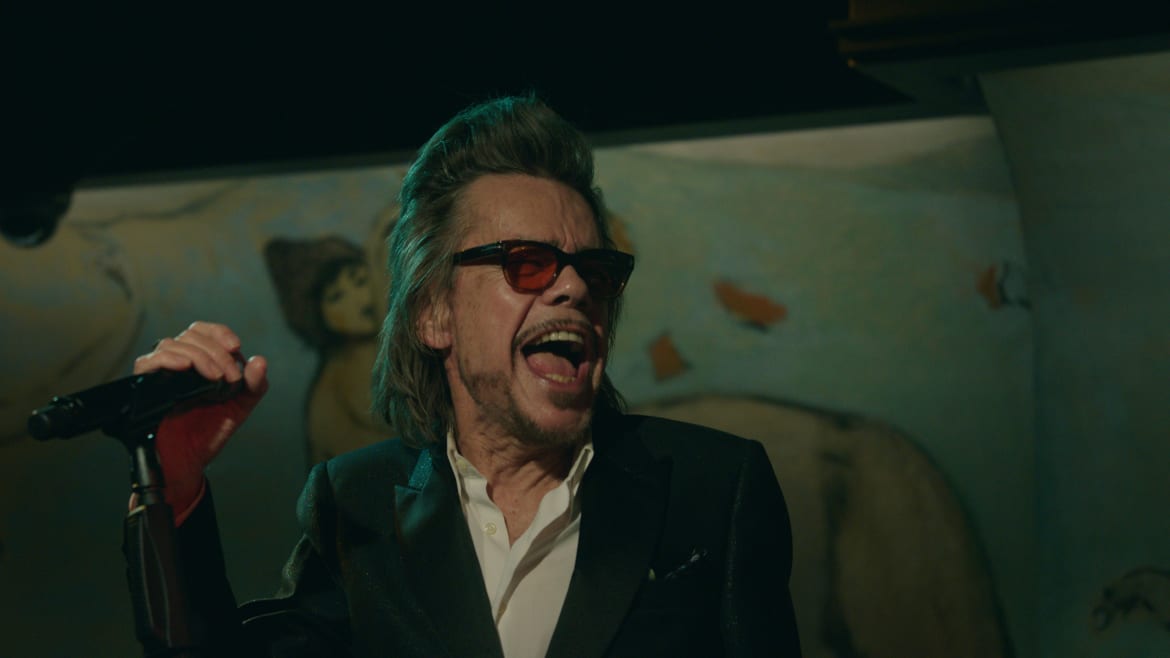Showtime
Martin Scorsese isn’t just a great dramatist; he’s also an exceptional documentarian, especially when it comes to music, as proven by The Last Waltz, Shine a Light, George Harrison: Living in the Material World, and his two Bob Dylan efforts, No Direction Home: Bob Dylan and Rolling Thunder Revue: A Bob Dylan Story. Now add to that impressive list Personality Crisis: One Night Only. The dynamic and affectionate non-fiction film covers the life and times of David Johansen, the groundbreaking and multifaceted lead singer of seminal glam punk band The New York Dolls who later fronted The Harry Smiths and performed under his alter-ego alias Buster Poindexter. Rock ‘n’ roll portraits this vibrant, introspective, and nimble don’t come around very often.
Co-directed by David Tedeschi, Personality Crisis: One Night Only (April 14 on Showtime) pays tribute to its subject’s diverse career and personality without resorting to archival-clip overload. It revolves around Johansen’s January 2020 show (on his 70th birthday) at New York City’s Café Carlyle, a swanky jazz cabaret whose stage features a backdrop of famous Marcel Vertès murals and whose audience includes friends such as Debbie Harry and Penny Arcade. Backed by The Boys in the Band Band (Keith Cotton, piano; Ray Grappone, drums; Richard Hammond, bass; Brian Koonin, guitar), Johansen rolls through a collection of catalog hits and personal favorites with easygoing bon-vivant cool. Decked out in a black suit, white shirt, and sunglasses—his frame as thin as his goatee, his pompadour still cresting like a wave, and one hand clutching the mic and the other snapping and waving in time with the beat—he’s at once high-wire lively and wistfully soulful; a seasoned troubadour in his element.
Collaborating with terrific cinematographer Ellen Kuras, Scorsese and Tedeschi shoot this concert from a variety of largely static camera positions that provide total coverage and immerse viewers in their exclusive setting; whether gazing at Johansen in close-up or from afar in this confined space, Personality Crisis: One Night Only has the intimacy of a private show. The film’s editorial structure (courtesy of Tedeschi) gives the material a silky, dance-like quality that’s in tune with Johansen, who swings and sways with the casual elegance of an artist who’s done this before and relishes the opportunity to do it again. From the moment he launches into “Funky But Chic,” he’s a crooner alive, and for the remainder of the evening, he never seems anything less than comfortable and delighted to be belting out tunes that have meant something vital to him and, also, to the legions of fans who’ve followed him along his unpredictable journey.

